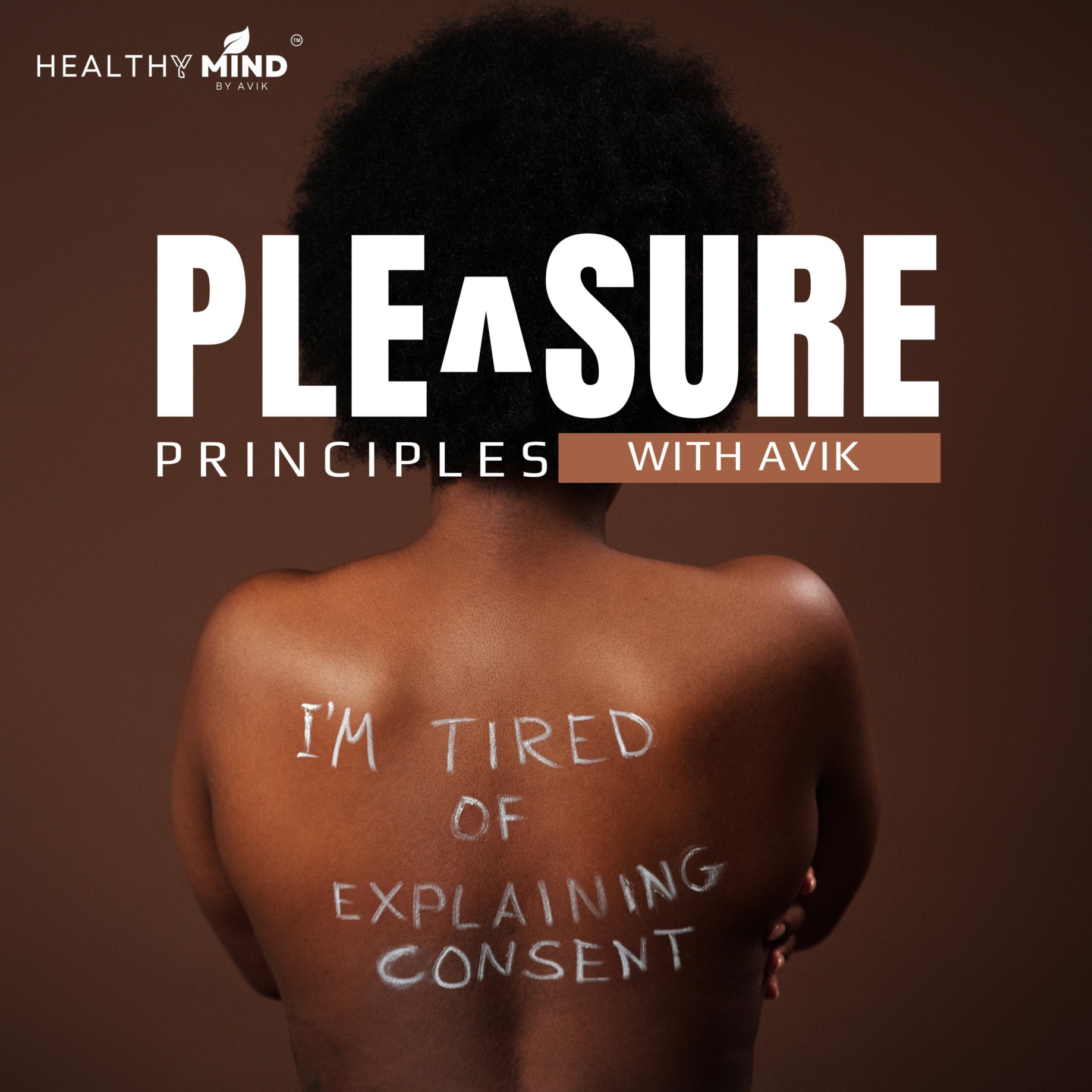
Mind Over Masculinity
Let’s stop asking men to "man up" and start asking how we can lift them up. After all, mental health is not just a women’s issue or a men’s issue—it’s a human issue.
Take the first step today. Talk, listen, and advocate. Together, we can make a difference.
Mind Over Masculinity
Overcoming ADHD: Embracing Strategic Planning and Support for Personal Growth and Empowerment - Jeremy Van Wert
Imagine navigating life with undiagnosed ADHD in the 1980s, a time when these symptoms were often misunderstood or dismissed. This episode of Mind Over Masculinity brings you an enlightening conversation with Jeremy Van Wert, a licensed therapist and former CEO, who has battled with ADHD's challenges and emerged victorious. Jeremy candidly shares his journey through school, dealing with constant distractions and feeling isolated by peers. He reveals how technology became his unexpected ally, propelling him to professional success and even to the helm of a company as CEO. His story offers a beacon of hope and practical strategies for anyone facing similar challenges, emphasizing the vital roles of strategic planning and a supportive team in high-pressure environments.
Unpacking the complexities of ADHD further, we discuss the weight of brain fog and disorganization, which many mistakenly normalize. By drawing from personal experiences, we underscore the importance of seeking therapy or coaching to break free from cycles of shame and frustration. Listeners will find guidance in Jeremy’s actionable advice, encouraging a clear-out of unhealthy habits and toxic relationships—essential steps for creating a nurturing environment where focus and growth can thrive. Whether you're personally affected by ADHD or seeking to understand it better, this episode promises to empower with insights and inspiration for embracing unique strengths and leading a fulfilling life.
Automate Social Media Post
Make Short Clips From Long Videos
Loved by 4M+ marketers, entrepreneurs & creators
Create and translate videos
Create and translate videos with HeyGen's AI Video Generator
Buzzsprout Podcasting
Disclaimer: This post contains affiliate links. If you make a purchase, I may receive a commission at no extra cost to you.
-----------------------------------------------------------------------------------------------------------------
Want to be a guest on Mind Over Masculinity? Send me a message.
-----------------------------------------------------------------------------------------------------------------
Stay Tuned And Follow Us!
- YouTube - https://www.youtube.com/@healthymind-healthylife
- Instagram - https://www.instagram.com/podhealth.club/
- Threads - https://www.threads.net/@podhealth.club
- Facebook - https://www.facebook.com/podcast.healthymind
- LinkedIn - https://www.linkedin.com/in/newandnew/
Hey everyone, welcome back to Mind Over Masculinity, the podcast where we dive deep into the untold struggles and triumphs of men's mental health. I'm your host, avik, and today we are tackling a topic that hits home for so many men living with ADHD. But we are not just scratching the surface here, but we are going deep into the stressors, solutions and, yes, even the breakthroughs that men with ADHD experience. And who better to guide us than our guest today, jeremy Van Wirth?
Speaker 2:So welcome to the show, jeremy. Thank you so much for having me. I'm super excited to chat about this Lovely lovely.
Speaker 1:So I mean, before we start our conversation, I'd quickly love to introduce you to all of our listeners. Dear listeners, Jeremy is a licensed marriage and family therapist with over 15 years of experience, a former CEO who climbed the corporate ladder from security guard to the top office, an author and a podcast host himself. So he's also an expert in psychedelic medicine and healing, bringing a fresh perspective to what it means to truly thrive with ADHD, bringing a fresh perspective to what it means to truly thrive with ADHD. And oh, did I mention? He's a former heavy metal band member and a cross-country cyclist. Wow. So, Jeremy, welcome to the show.
Speaker 2:I can't wait to dive deep into this incredible story and your insights into the world of ADHD.
Speaker 1:Thank you, so much, I've done a few things. Yeah, exactly, exactly. So, jeremy, you have mentioned being a rebellious kid with undiagnosed ADHD, so can you take us back to that time? I mean, what were the biggest challenges you faced growing up, and how did ADHD impact your early life?
Speaker 2:Early in the 1980s was when I started attending school and having a lot of difficulty being able to listen, always having myself distracted and having just a difficult time with my peers. And teachers noticed it, and I was always in trouble, and my mother had me tested and I did receive a diagnosis of ADHD and in the early 1980s this was something that was relatively new and so the medication at the time was Ritalin, and I was placed on this and it did a marginal job of helping me. But I would say really, to answer your question, through all of my school time, somewhere deep inside me I knew that I was bright and capable, but I could not concentrate and I didn't know why. I was just constantly distracted and I wasn't able to focus on anything that wasn't just really interesting to me, and so, whether it was art or music, I really excelled in these kinds of things, but I couldn't sit there and read a book. Incidentally, I'm 48 years old now and I still struggle with those same things, and I overcome them through technology, and we'll get to that in a moment. But one of the things that just really stalked me and the biggest challenge for me was rejection from my peers. That was really the hardest thing and you know I had all of these problems with academics and everything, even though one-on-one I was able to perform, you know, at a very high level. When I was in a room full of 32 kids, it was absolutely impossible for me to focus on level. When I was in a room full of 32 kids, it was absolutely impossible for me to focus on something, whether I was in the first grade or I was in a high school classroom.
Speaker 2:By the time that I was in high school I had virtually given up that I was smart or that I was really going to get anywhere, and I really wasn't looking at a career that was going to be particularly challenging in any way, because by that point I had suffered so many letdowns and setbacks that it just felt like I wasn't really going to be a successful person and got myself going into. You know, I became a security guard and was really good at dealing with people because I could serve people, talk to them, get them where they needed to go and not just simply escalate on them, which is a lot of what tends to happen in those situations and I was able to get myself going kind of in more corporate level jobs until I, you know, did climb the corporate ladder. I got two master's degrees and ended up as a CEO. And all of these years in between were me having these little epiphanies going.
Speaker 2:You know what? I think I'm smart. I think I'm smart, but I still struggle with this. I still struggle with that. But if I can rely upon this technology, if I can use that technology, all of a sudden I'm getting the information, I'm able to retain this stuff, I'm able to write good research papers, I'm able to do great proposals and be really, really successful, compensating for things that I had no ability to compensate for when I was a little boy.
Speaker 1:And that was the hardest thing is the rejection and not knowing what to do to overcome a lot of these problems with distraction and hyperactivity okay and and um okay, so like, uh, I think so many men listening might be nodding along right now, realizing, like how often we downplay our strata I mean struggles or brush them aside, just how we are. So your journey definitely makes it clear that awareness is the fourth step towards transformation. So also, adhd can feel like chaos, or maybe especially in high stakes environments like the corporate world.
Speaker 2:So as someone who's been as a CEO how do you navigate that pressure while managing the ADHD?
Speaker 2:You know it's very, very difficult and particularly with a high-level job like CEO, you're being pulled in a lot of different directions and the ADHD mind really wants to meet every single challenge as it comes and you kind of tend to end up getting stuck in the moment, dealing with every single thing as it comes.
Speaker 2:And you kind of tend to end up getting stuck in the moment, dealing with every single thing as it comes, and you have to really work to pull yourself back, be strategic, have a really good assistant that can help keep things away from you that are not necessarily long-term strategic things, because you know, when you're in a lot of these jobs, everybody wants a little piece of your time, and so the ways that I navigated this is something that I work with people in my coaching on is setting goals, being consistent every single day with the things that you need to accomplish with those goals.
Speaker 2:A checklist ADHD people do really really good with checklists and if you can go down a list every single day, I did this, I did this. It's like daily bread Checking off these things on a list that you do, adding the appropriate things, taking away the appropriate things and having a little bit of time for play spontaneity during the day, but not too much so when you're looking at your life in a long-term way, where you're being held accountable for your goals. You know your goals. They're very, very clear, people around you know what your goals are and you have the kind of assistant working with you that understands you a lot and can help keep things off your plate that don't need to be taken care of right now. That's the way that you really can navigate this sort of thing at the higher levels of things.
Speaker 1:Exactly, exactly true. Yeah, exactly exactly true. Yeah, that's so powerful because I think we often hear that narrative that success, uh means fitting into your, fitting into a mold, uh. So you are definitely flipping that script and, um, showing that success can come from working with, not against, so your nature. So, yeah, and men often struggle with seeking help, so, whether it's therapy, coaching or even just opening up. So, from your experience, why is this so difficult for men with ADHD and how can we break that barrier for you?
Speaker 2:When you have ADHD, through your life you suffer various different levels of rejection rejection from peers, rejection from a system and each time I mean it hurts, it really hurts. And as a man, what do we do? We have to be tough, we have to have some level of resilience, we have to just kind of grin and bear it. It's part of what manliness has kind of become. It's not a particularly healthy attribute of the construct of masculinity right now, and what happens with men who have ADHD is that you end up feeling stupid, less than others, like you're not able to accomplish what other people can, and you end up having a little bit of an inferiority complex a lot of times, and so it kind of drives you away from seeking the kind of assistance or help or going. Gosh, what is going on inside of me that I can't remember things, that I can't prioritize things, that I sit here and scroll all day because I just need that dopamine hit so badly. And so when you're talking about the lack of going and finding things out about yourself, number one, it becomes a little bit normal for these gentlemen to have brain fog and not think anything of it. It becomes a little bit normal for them to have relationships that come and go and that they're just focusing in the moment on things and kind of going in a million different directions and they end up just calling it normal instead of going.
Speaker 2:I keep forgetting things. I'm very disorganized. I walk into a room and I forget what I'm doing always, and I know that I was trying to clean out the side room because I ended up cleaning the kitchen this kind of I need to do this, and then I need to do this, and then I need to do this, and then I need to do this this undisciplined kind of tornado of things that we end up doing. Undisciplined kind of tornado of things that we end up doing. Number one it's important to recognize something's going on with me where I just have a difficult time following through with things, organizing things and making things happen.
Speaker 2:The second thing is where do I go to deal with this? Who would understand me? And that's really a part of what I do as a coach is to help people that are finally realizing gosh, I need to get a hold of this. I need to figure out what I need to do with my physical body, with my exercise, with my nutrition, with any medicine that somebody would need to seek, and how do I organize my office, my space, my room, my relationships and actually do that? The problem comes with men just going. I just simply need to try harder. I just need to be tougher, and that doesn't serve men, true.
Speaker 1:Lovely. And what advice would you give to someone who knows that they need help but feels stuck in shame or fear?
Speaker 2:Well, and shame or fear becomes a piece of our identity, and it's a dangerous piece of our identity, because it's the piece of our identity that constantly says we can't or we shouldn't or there's something that we need to be afraid of. Actually grabbing a hold of the next rung of the ladder, getting yourself a great coach, a great therapist, it is you taking control of your life and finally saying something's got to stop this spinning that I'm doing and I would definitely recommend that the men listening if you're dealing with this kind of thing. I just can't seem to get myself organized. The women in my life are always kind of yelling at me because I'm forgetting things all the time. Has that been a chronic problem all of your life?
Speaker 2:Were you not a very good student, even though you particularly tend to be relatively bright? Do you have? Are you able to listen to a book and get it right off the bat? But reading it is just an arduous I never finished the book kind of process. You probably have some sort of attention-related issue. That you should sit down with a professional who's got a ton of experience in it and look into it Doesn't mean that you're any less of a man. Doesn't mean that you're somehow labeling yourself with some kind of victim mindset thing. It means that you're actually taking control of your life and so that you can actually do something in your life that helps you get where you want to be wow.
Speaker 1:So your life story is filled with reinvention from rebellious kid to therapist, to ceo, to now a coach and thought leader. So how has adhd fueled your ability to constantly evolve?
Speaker 2:because I always love to learn. I always love to learn new things and to challenge myself and to get to a new level. People with ADHD tend to get bored because we have this incredible ability to pattern recognize and so we get into a position in a corporation and it very quickly becomes perfunctory and non-challenging. And in the space where I am now, I get to evolve and I get to do several different things and I've gotten a certificate in psychedelic medicine and it's a really interesting world of spirituality and mind expansion. And it has an incredible application in the world of ADHD, because many people with ADHD have a really difficult time with being mindful and meditating no-transcript, because meditation is so difficult when you have a difficult time focusing. So for me it has been reinvention over reinvention, because my mind is so constantly stimulated by learning new things and becoming a different version of myself and constantly pulling myself up.
Speaker 1:I understood. So, for someone who feels stuck in their current chapter, what's your advice on taking that first step towards reinvention?
Speaker 2:Number one take out the trash. Take out the trash in your life. Take a look around you. What is the trash? What is the stuff that you wouldn't have in your kitchen? Number one what is the garbage that you're eating? What are you drinking? What is that stuff that you're poisoning your body with? Is it fatty foods? Is it alcohol? Is it weed to excess? Is it stuff that's not going to help you and your brain focus on thing?
Speaker 2:Take out the trash in terms of bad relationships in your life. Are the top five people in your life people who lift you up, people who raise you to the next level, people who hold you accountable in a positive and loving way? Are these people who want to see you succeed? And if these people aren't that, if they're old people in your life that just simply have kind of been around, sometimes need money from you, always need attention, never have anything positive to say. Take out the trash in the relationships in your life. If those relationships are not things that are feeding you. You need new relationships with new people.
Speaker 2:Number three take out the trash. You need to organize your living space. Is the place that you work a place that is organized? Is your work fulfilling to you Is the place that you live, a place that is clean. Do you make your bed every single day, do you empty the trash throughout the week, and so that your work and your home space is actually clean. These are the steps to begin taking to really reclaim the power in your life, so that you are the one in charge Replace the with really good things.
Speaker 1:Lovely, and so, for all the listeners who are listening today, any advice you would like to mention to give.
Speaker 2:So everything in your life requires choices, and the choices that come are mainly about how do you elevate your life to become a higher version of yourself.
Speaker 2:We have coaches in high school that help us with volleyball, with weightlifting, with marching band, all these different things. Then we may go through college or not, and then we have a boss. Okay, your boss is not your coach. Your boss is somebody that expects certain things out of you and if you don't do your job, your boss says thank you, you can go to a different company now. But having a coach in your life, having somebody in your life that can help not only recognize the incredible things that you are able to do, but can hold you accountable to those things, help you set clear goals, help keep you on the right track. If you had a coach back then, why wouldn't you invest in somebody now that can help you raise your vibration, get you to the next level, not only physically, but in your personal relationships, in your professional world, in your spiritual life. Get you to the next level so that you're functioning as the higher version of yourself, not just one that is stagnated in your life.
Speaker 1:Yeah, yeah, perfect. So, jeremy, this conversation has been an eye-opening, inspiring and incredibly empowering. I would say Thank you so much for sharing your wisdom and your story with us and for the listeners. If Jeremy's journey and insights resonated with you, I encourage you to take action, whether it's reaching out for the support, exploring alternative therapies or simply reframing how you see yourself. You have the power to rewrite your story. So be sure to connect with Jeremy through his podcast, mindful Mutiny, or check out his books and coaching programs. And, hey, do not forget to subscribe to mind over masculinity for more conversations that challenge, inspire and empower you. So until next time. This is your host, avik signing off. Thank you so much.







